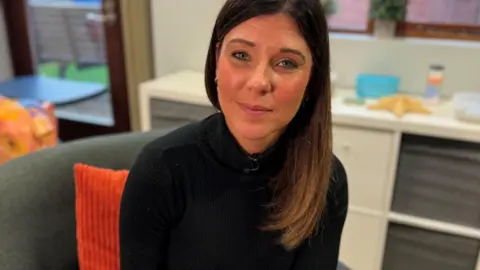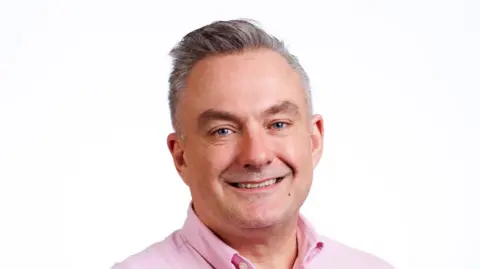'Extra hospice funding will not help with cuts'
 BBC
BBCExtra funding for hospices will not allow a charity to reverse its cost saving measures, which will see a third of beds close, its boss said.
Hospice bosses have welcomed the £100m of funding announced by the government, but said a long-term financing plan still needed to be agreed.
Paul Bytheway, CEO of Birmingham Hospices, said he was pleased the government is taking the funding challenges seriously.
However, he said the money would most likely not change the fact it had been forced to cut the equivalent of 45 full-time posts - about 14% of its overall workforce - due to funding pressures. Elinor Eustace of St Giles Hospice also said cost cutting measures would not be reversed.
On Thursday, Health Secretary Wes Streeting said the money, to be paid over two years, was "the biggest investment in a generation" and would go towards improving buildings, equipment and accommodation.
Birmingham Hospice announced in June fundraisers would have to find £6.5m in 2024 to cover the costs of running the charity, which amounts to more than £55,000 per day.
Mr Bytheway said he was still waiting to see how the money will be spent, before knowing the true impact of the government's intervention.
"I think we're clear that the intention from the government is that we use this money to try and short term fund some of the challenges that we have in the hospice sector generally," he said.
"But we do need a long-term funding solution for increasing costs in general to allow hospices, which are charities, to continue to deliver the level of services that they have done, particularly across Birmingham, for many years."
 Birmingham Hospice
Birmingham HospiceDetails of the £100m investment will be shared with the hospice sector in the new year, the government said.
Only about a third of hospice funding comes from the NHS – the rest has to be raised from donations, fundraising and charity shops.
Elinor Eustace, CEO of St Giles Hospice, based in Lichfield, said the money would not allow her to revert a number of cost cutting measures.
The charity closed eight beds and made 21 staff redundant in November, despite overwhelming demand for their services.
"If we want to put beds back into the system, then we need to discuss a long-term funding model for hospice care and indeed raise more money from the community," she said.
"I really hope that going into 2025 we are able to open up those conversations about more long-term sustainable funding models."
Follow BBC Birmingham on BBC Sounds, Facebook, X and Instagram.
